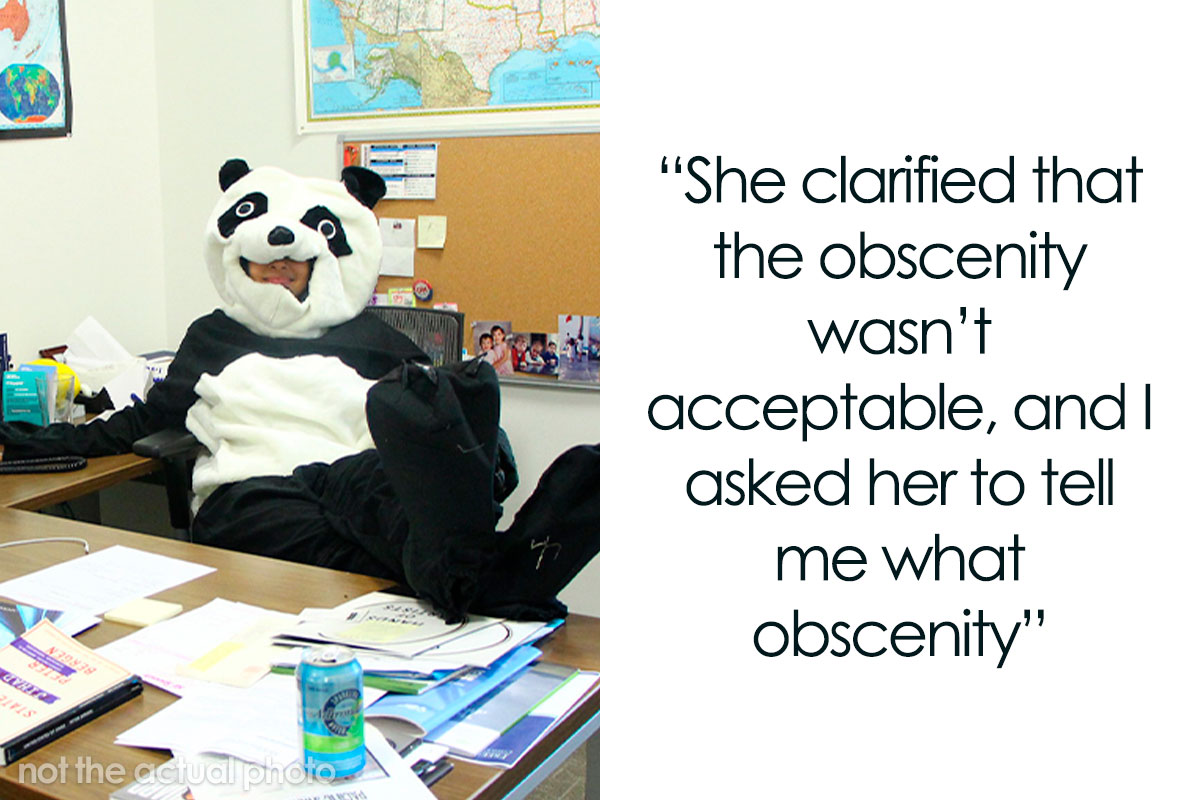
“She Doesn’t Know Basic Corporate Acronyms”: Oblivious Supervisor Reprimands Employee
Sometimes you hear something so insulting, so outrageous, it’s impossible not to intervene. You can’t just let that person go unpunished. Then you realize that you’re the only person around who took what was said as some kind of insult, leaving you feeling mighty stupid.
Today’s story is about a person who never did have that final realization, or at least never admitted it. A manager saw a suspicious “fu” note in an employee’s screen-share and decided to give them hell for it, without taking a moment to actually use their head.
More info: Reddit
Everyone could stand to gain something by not assuming things about other people from a single glance or misheard word
Image credits: Jack Sparrow (not the actual photo)
A woman took it to the antiwork community to share how her supervisor’s misunderstanding could have cost her job
Image credits: Flaky_Web_2439
Image credits: Paramount Television
While screensharing, the super noticed a “fu” note in a conversation about a customer and started questioning the employee
Image credits: Flaky_Web_2439
Image credits: New America (not the actual photo)
The employee couldn’t possibly guess what the problem was, as “fu” simply meant “follow up” and not anything naughty
Image credits: Flaky_Web_2439
The poster laughs about the situation now, but at the time her job was threatened by a oblivious manager
New hires usually are oblivious. I mean, training them is all part of the onboarding process, right? And most of the time, they are oblivious in the best way possible – they are nice, asking questions all the time, not assuming anything, and are a treat to be around as a rule.
They aren’t half as jaded and tired as older employees, so it’s nice to have a bit of that rub off on you.
But as every rule has exceptions to it, as do new guys. Once in a blue moon, you get a person who is rude, entitled, thinks they know everything far better than you, and on, and on, and on it goes.
In these cases you’re unsure of what to even do with this person. You can tell they won’t last long at work, but don’t know how to break it to them. It’s not your job anyway, so you try to pawn them off on someone else, hoping you won’t have to see them again soon.
You’re out of luck if you’re someone like the original poster (OP) of the story. It’s uncertain how long the manager spent with them, but from her overall lack of experience as a manager and at the company, it doesn’t seem like an overly long time.
I mean, if she’s new, I can’t blame her for raising an eyebrow at a literal “fu” in the middle of a message, but it’s her attitude that’s the problem, really. If she had taken a questioning tone, rather than assuming everything upfront, perhaps she wouldn’t have gotten heartily laughed at by her subordinate and maybe even stayed on in the company for a bit longer.
Image credits: Gobierno de Castilla-La Mancha (not the actual photo)
While being confused about corporate acronyms is nothing new, as many of them are created on the fly, rather than being ingrained in the public consciousness, a lot of people are really oblivious when it comes to even the most basic of shorthand.
Although, there is certainly another camp of people saying that it’s not the people who are at fault for not knowing all these silly acronyms, but rather their excess.
A Redditor on the Unpopular Opinion sub took a moment to vent about the extreme amount of random acronyms on the site that are not intuitive at all, gaining over 12k upvotes. In the comments, many, many people bashed their own companies for using shortenings for absolutely everything.
Someone in the comments even wrote up a humorous text filled with acronyms of all kinds and when someone asked for a translation, they got TLDR (too long; didn’t read) translated to “To Limp Dead Rats,” which is how I strive to address my business emails from now on.
It also seems that a lot of parents in the early 2000s and 2010s had a difficult time dealing with all the secret shorthand their kids were using in messages. That was how you got articles “explaining” them. I say “explaining” in quotes, as they’re doing an abysmal job of it.
This is how you get things like POS meaning “parent over shoulder”, SWAK – “sealed with a kiss” or GYPO – “get your pants off”. Now, I feel like I know teenagers quite well, having been one not THAT long ago. Believe you me – a teenager would rather spontaneously combust rather than use these. You can correct me in the comments, teens.
So, before you judge how someone else talks at work or informally, please try to make sure that the acronym you think they’re using has the same meaning you’re thinking of.
This post got over 14k upvotes on the antiwork sub and 800+ comments to boot. The commenters shared their own stories of being accused of crazy things while at work, saying that it could have been avoided only if people wouldn’t be so assumptive.
Share your own thoughts and horrible acronyms you’ve heard in the comments below!
The commenters shared stories of their own, where they were accused of total nonsense
139Kviews
Share on FacebookI'm with Many_Tank. F/U is the only way I've seen it written. Just like Air Conditioner is A/C. (The acronym "AC" is Alternate Current.)
Some programs are old and don't allow symbols so the "/" gets left out. I've worked on my ancient DOS systems run by billionaire companies
Load More Replies...Piece of trivia for all y'all... There's a difference between an acronym and an initialism. They're both formed by taking the initial letters of words, but an acronym is pronounced like a word. For example, National Aeronautics and Space Administration (N.A.S.A) is pronounced Na-Sah, not en-ay-es-ay. Initialisms, however, are spoken by saying each letter. Examples: F.B.I., C.I.A., A/C, TCP/IP, C.P.A., and R.N. So, if you say it like a word, it's an acronym. If you say each letter, it's an initialism.
A great example of why it's important to be clear in your communications. I would always call out anyone using a TLA that wasn't obvious to me, usually to find that somebody else in the same meeting also didn't know it. This was particularly true in an international (Swiss-based) company with many non-native Eglish speakers. UK and US colleagues making no concessions to others used to really get on my tits.
I had a boss who mentioned S.M.B. when talking about corporate marketing. I stopped her and said "In my world, S.M.B. means Server Message Blocks, which makes ZERO sense in this context." She laughed and informed me it meant Small and Medium-sized Business, which made MUCH more sense!
Load More Replies...I'm with Many_Tank. F/U is the only way I've seen it written. Just like Air Conditioner is A/C. (The acronym "AC" is Alternate Current.)
Some programs are old and don't allow symbols so the "/" gets left out. I've worked on my ancient DOS systems run by billionaire companies
Load More Replies...Piece of trivia for all y'all... There's a difference between an acronym and an initialism. They're both formed by taking the initial letters of words, but an acronym is pronounced like a word. For example, National Aeronautics and Space Administration (N.A.S.A) is pronounced Na-Sah, not en-ay-es-ay. Initialisms, however, are spoken by saying each letter. Examples: F.B.I., C.I.A., A/C, TCP/IP, C.P.A., and R.N. So, if you say it like a word, it's an acronym. If you say each letter, it's an initialism.
A great example of why it's important to be clear in your communications. I would always call out anyone using a TLA that wasn't obvious to me, usually to find that somebody else in the same meeting also didn't know it. This was particularly true in an international (Swiss-based) company with many non-native Eglish speakers. UK and US colleagues making no concessions to others used to really get on my tits.
I had a boss who mentioned S.M.B. when talking about corporate marketing. I stopped her and said "In my world, S.M.B. means Server Message Blocks, which makes ZERO sense in this context." She laughed and informed me it meant Small and Medium-sized Business, which made MUCH more sense!
Load More Replies...
 Dark Mode
Dark Mode 

 No fees, cancel anytime
No fees, cancel anytime 













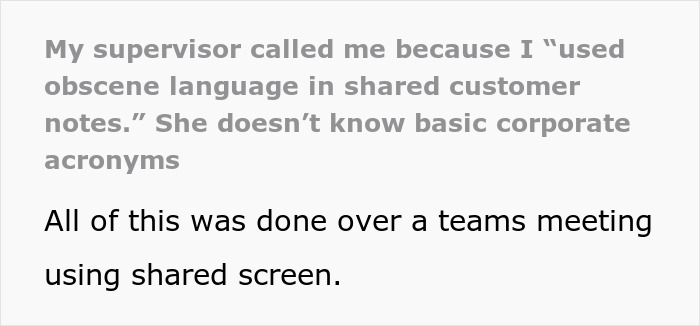
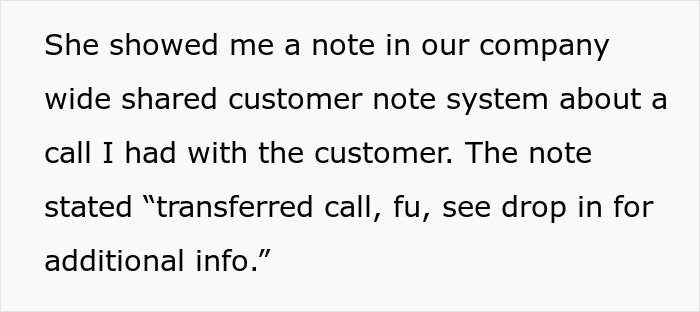






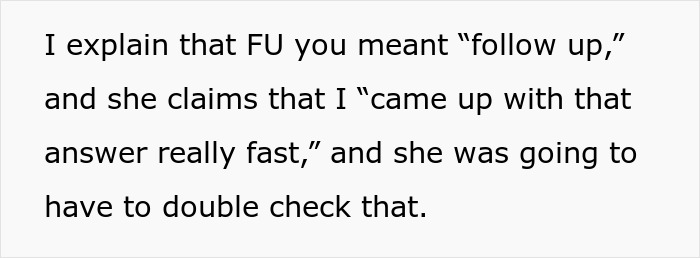


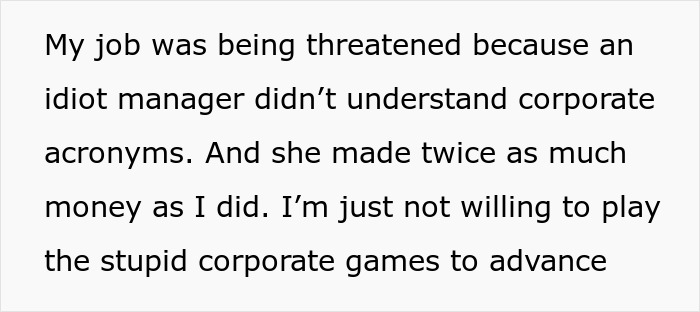


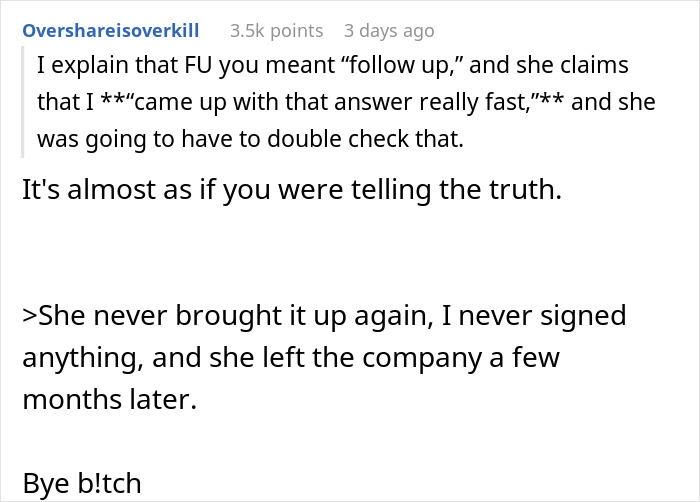



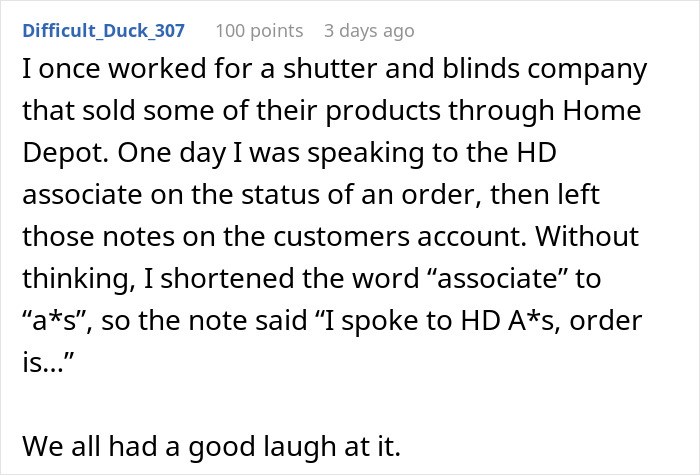
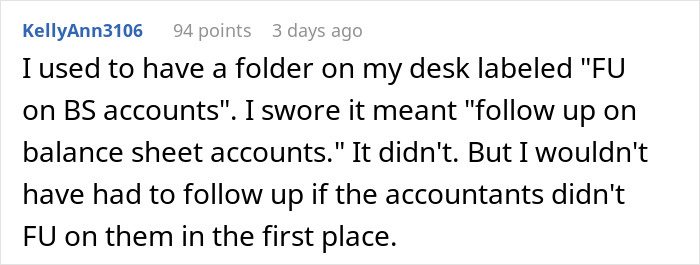



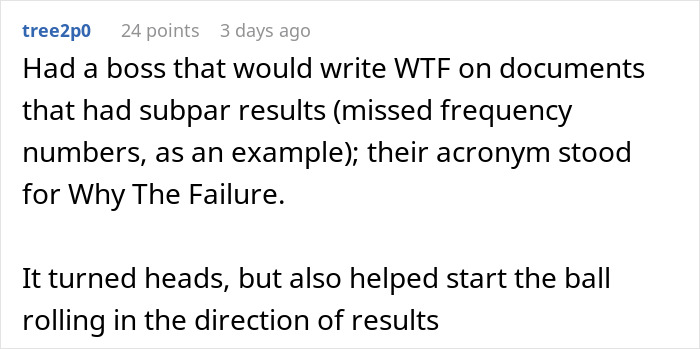

























52
65